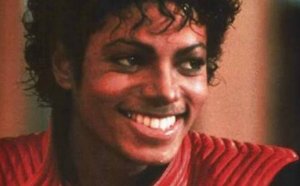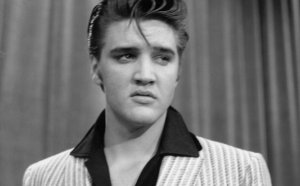
Pop music artists
 Chances are that the picture of Sam Smith with arms barely big enough to cradle his haul of gold statuettes at this year’s Grammy awards will end up in a platinum frame as the UK music industry audits its success before the year is over.
Chances are that the picture of Sam Smith with arms barely big enough to cradle his haul of gold statuettes at this year’s Grammy awards will end up in a platinum frame as the UK music industry audits its success before the year is over.
After all, the same artist also triumphed at the Brit awards, and for his multitude of fans, as well as management team and A&R executives at Capitol records, the image has probably already been embellished by the glint of a virtual halo.
Yet there is a dark shadow lurking behind this feelgood lustre. Smith is being held up as part of a new wave of soul singers that includes George Ezra, Jessie Ware, and Smith’s predecessor in Grammy-grabbing, Adele, and unless you buy the questionable line from our most dubious politicians that dear old Albion is now wonderfully colour-blind it is impossible not to see that all of these vocalists are white. One might say it’s all gone a bit monocultural.
The absence of Smith’s black counterparts from the roster of star-making major labels, not to mention the podium of high-profile awards shows, may be an inconvenient truth for a society grappling hard with the thorny issues of diversity and equal opportunities, but it is an all too real and discomfiting fact.
Despite what the casual onlooker may think, there are several black soul singers working in Britain today but they occupy an increasingly marginal space in the music industry, signing either with independent labels or paying the bills with jobs in theatre and education. Among the most talented are Carleen Anderson, Noel McKoy, Elisabeth Troy, Shaun Escofferey, Alison Evelyn, Don-E, Caron Wheeler and Omar.
All of the above have either worked in musicals or in classrooms in the past few years, but have kept on making music, and certainly Omar, who debuted in the early Nineties and counts Stevie Wonder, Gilles Peterson and India Arie among his fanbase, has by no means lost his mojo. His current album The Man is one of the best of a discography that counts seven releases of a consistently high standard.
According to Greg Boraman, manager of the Freestyle label to which Omar is signed, the key reason for the artist being sidelined is a myopic conservatism. “It does seem that black soul music artists [as opposed to urban acts] are often engaged in an uphill struggle to compete with the current crop of white major-label soul-influenced, but firmly pop based artists. Whilst I don’t doubt the sincerity of those artists’ love of soul music, the industry, especially mainstream radio, seems institutionally uncomfortable with music that’s more soul than pop.”
The essential thing to understand is that there is a gulf in creativity between the Omars and Sam Smiths of this world. One can’t dismiss questions of race and image, specifically the fact that Smith’s clean-cut appearance is more marketable than Omar’s architecturally adventurous dreadlocks.
 Cloud nine: Adele grabbing Grammys in 2012 (Kevork Djansezian/Getty Images)
Cloud nine: Adele grabbing Grammys in 2012 (Kevork Djansezian/Getty Images)
But, more importantly, there is no denying the argument that the latter upholds the lineage of Stevie Wonder and Marvin Gaye through his great originality, not his ethnicity. Soul music has never been reducible to an impassioned church holler or ornamental melisma over a perfunctory melody.
An ability to pull off a few trills and crescendos does not a soul artist make. Fine vocal technique, which Smith has, is not the sole criterion. At a premium is musicianship in the most complete sense and a desire to have truly creative rather than derivative material, often with a judicious application of new technology and an embrace of other genres.
Omar’s experience is largely mirrored on the other side of the Atlantic. Artists who are at the cutting edge of soul, such as Bilal, Jhelisa, M. Nahadr and Meshell Ndegeocello, struggle for the big league recognition they deserve. D’Angelo is a fantastically gifted artist who can sell out major venues but his output has been too frustratingly meagre over two decades (he’s only produced three albums since 1995) to fully consolidate his career.
Yet these artists are mavericks. They don’t do dumbed-down. And that hampers them and their British kindred spirits. Boraman says: “At the same time as we were pushing Omar’s “The Man” single for mainstream radio play, Robin Thicke’s “Blurred Lines” was around and, as you may expect, won out. I challenge anyone to compare the two tracks and not appreciate Omar’s originality and genuine soul credentials.”
Cutting edge of soul: Bilal
Whether or not you agree with the recent court ruling that “Blurred Lines” is a rip-off of Marvin Gaye’s “Got to Give It Up”, Thicke’s track symbolises an infantilisation of the soul canon. The mainstream wants its soul with neither innovative style nor political substance.
Although Smith’s success inevitably invokes the “Elvis syndrome” – the white boy who sounds black is the ultimate cash cow – the fact of the matter is that the war on originality transcends race. It shoots down insurgents across the colour line. Scan the history of soul in the UK in the past 15 years and you find a string of excellent white and multiracial acts who did not end up with Brit awards: Lewis Taylor, with his superbly trippy pyschedelic fantasia; Izzi Dunn, with her swish electro-classical riffs; Nash, a band with an energizing hip-hop rock flavour.
YOU MIGHT ALSO LIKE



Share this Post
Related posts
Top pop music artists
As 2015 draws to a close, we pause to reflect on the artists, albums and trends that left lasting impressions. ALL ABOUT…
Read More1950s music artists popular
The 1950 s were a time of changes and the music of the decade both reflected the cultural changes that were happening while…
Read More










